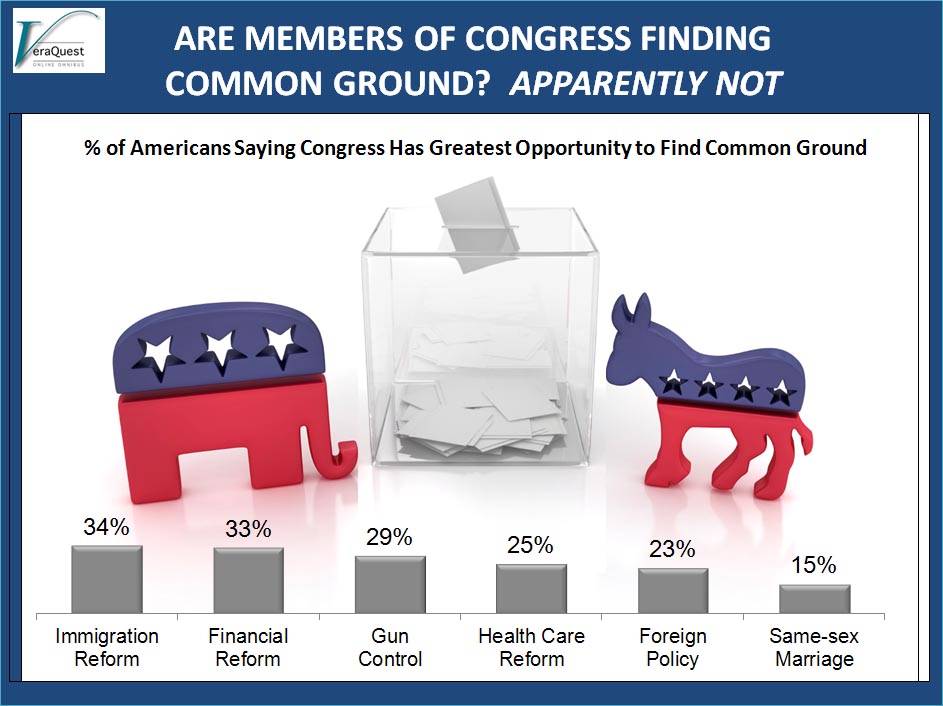Perhaps I am too much an optimist or maybe just plain naive. After the election, once the negative campaign ads had ended, I was hopeful that both sides of Congress would start working together to solve the country’s problems. Immigration reform seemed to be gaining traction on both sides of the aisle. The tragic events at Sandy Hook Elementary School appeared to galvanize the country to act decisively in order to stem gun violence. It felt to me that enough of our leaders truly wanted to find common ground that the gridlock that has paralyzed our country for so long would finally be chipped away if not broken.
Being the researcher that I am, I wanted to see whether it was just me who felt this way or if there was a renewed sense of optimism from the American electorate. Well, I could not have been more wrong. Whether it be partisan bickering like the GOP filibuster to block Chuck Hagel from becoming the Secretary of Defense or the seemingly imminent doomsday scenario known as sequestration, our American leaders could not be further apart.
As if to underscore what’s happening in Washington, the view from outsiders (like us back-seat non-legislators) is fairly bleak. Based on the latest VeraQuest omnibus survey on party politics, from our vantage point, it appears like this 113th Congress:
- is still far apart on most issues (76%) – and perhaps moving even farther apart (46%), and unfortunately…
- will not be able to work together or be any more productive than the last Congress (64%).
Only a small fraction of our country believes that this Congress is making good strides rebuilding relationships (6%) and that the media has been exaggerating the mounting tension between the two parties (7%).
To be successful, the two parties will have to follow the advice that we give young children on the playground: “you have to give a little to get a little.”
But for that kind of elementary-school compromise to occur, there would need to be at least a sliver of shared space on the Venn Diagram of party platforms. Yet – factually (as of mid-February, 54 of 101 Senators in the 113th Congress had voted with their party 100% of the time), and by the opinion of most U.S. adults, that shared space may not exist. Of all the public policy issues that Congress tackles, Americans have difficulty agreeing on what, if any, issue might offer a clear or straight-forward path to compromise. A minority of Americans sees the greatest opportunity to find common ground in:

Looking very specifically at the debt ceiling, while 72% of Americans feel that Congress will eventually reach agreement (or they did the end of January when the survey was fielded), only slightly more than 1 in 10 believe that an agreement would occur more than a week before the next deadline – and a plurality of Americans believe that any agreement won’t take place until hours before the deadline is set to kick in.
Do you believe that Republicans and Democrats have become so blinded by their own point of view that compromise is now impossible? Which party do you blame (more or less) for any deadlock? Can common ground ever materialize in an authentic, non-gimmick induced way? Do you think you get along with your co-workers better than members of Congress do?
Leave a Reply